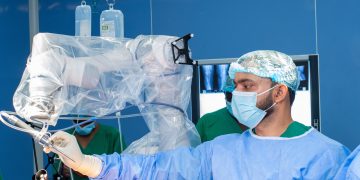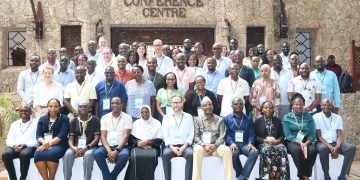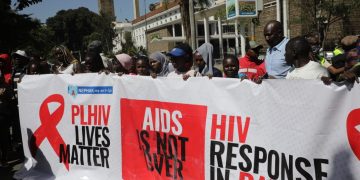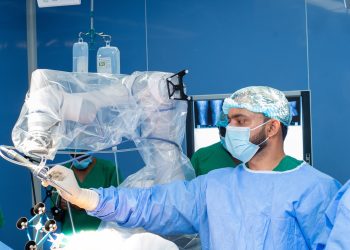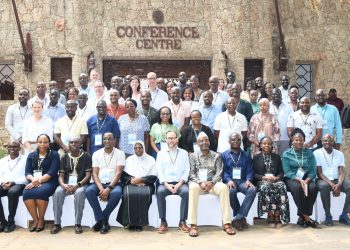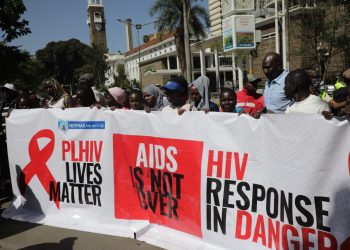AIDS Healthcare Foundation Kenya has initiated a bold step toward integration, with the launch of a new wellness centre at the AHF Mathare Clinic that combines HIV, tuberculosis (TB), and sexually transmitted infection (STI) and nutrition services under one roof.
The initiative by AIDS Healthcare Foundation (AHF) Kenya, represents a shift from disease specific “vertical” programs toward a holistic, patient-centred model of care.
According to Dr Samuel Kinyajui AHF-KENYA,Mathare Clinic, once a stand-alone HIV facility, has steadily expanded its services to include TB management and, now, comprehensive STI care.
“Today we launch our modern laboratory at Mathare which has the capacity to test for more than 10 different STIs,” Dr Kinyanjui said adding “So far, the most common infections we diagnose are syphilis, gonorrhoea, and chlamydia. What is striking is that nearly half of those who tested positive had no symptoms they came simply for screening. This proves the importance of regular check-ups.”
He added that ,beyond HIV and STIs, the Mathare clinic has evolved into a comprehensive wellness hub, offering, HIV prevention, testing, treatment, and management of opportunistic infections, including TB and Kaposi’s sarcoma.
“The facility now offers TB services including screening, diagnosis, and full treatment.Mangement of Non-communicable disease care including management of diabetes, hypertension, and asthma.Maternal and child health specifically antenatal care for women living with HIV, immunisation, and well-baby clinics,”Dr Kinyajui said.
He added that the clinic is also providing adolescent and young women’s health focusing on HPV vaccination for girls aged 9–15 to prevent cervical cancer.
The facility also provider Cancer prevention such as cervical cancer screening and early intervention through thermoablation, he said.
“This integrated model ensures that every person who walks through our doors is seen as more than just a diagnosis,” Dr. Kinyanjui stressed. “It is patient-centred, comprehensive, and built for long-term wellness.”
The facility also provides a nutrition services for the sick who are on medication and street families who are provided with free porridge and washing areas.
Dr Kinyajui said that AHF hopes to expand the model to other cities such as Mombasa and Nakuru, though costs remain a barrier. For now, Mathare and Kamukunji are serving as sentinel sites, where lessons can be drawn for future national scale-up.
According to Dr. Stephen Ndolo, Director of Promotion and Programme Management at National Syndemic Diseases Control Council (NSDCC), the integration aligns with a national strategy to move away from fragmented disease-specific programs.
“For many years, HIV services in Kenya were provided in isolation. While this helped scale up care, it created challenges when patients needed holistic support,” Dr. Ndolo explained. “By integrating HIV with TB, NCDs, and other health services, we make it easier for healthcare workers to provide comprehensive care without stigma or fragmentation.”
According to NSDCC, Ministry of Health has rolled out multiple integration models across counties by establishing a one-stop chronic disease clinics that manage HIV, TB, diabetes, hypertension, and other long-term conditions together.
Outpatient streamlining for facilities with fewer patients, embedding HIV care in routine outpatient services.
“This approach also comes at a critical time when donor funding for HIV is declining,” Dr. Ndolo added. “Integration ensures sustainability of HIV services and strengthens the overall health system.”
Ndolo said that the integration agenda has already been communicated to counties and should be implemented nationwide.
Dr Ndolo says that both national and county governments have endorsed the approach as a pathway toward universal health coverage.
“We laud the counties for embracing this model,” Dr. Ndolo said. “It is a step toward people-centred, sustainable healthcare.”
Dr Kinyanjui said that AHF Mathare is leading by redefining HIV response by embedding HIV and STI services and also addressing the wider health needs of its citizens.
“At AHF, our commitment is clear,” said Dr. Kinyanjui. “We are not just fighting HIV but building healthier communities.”


